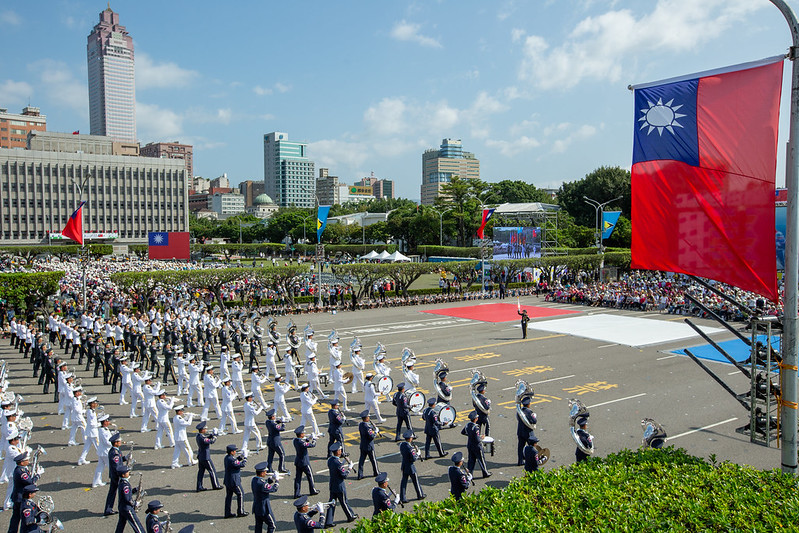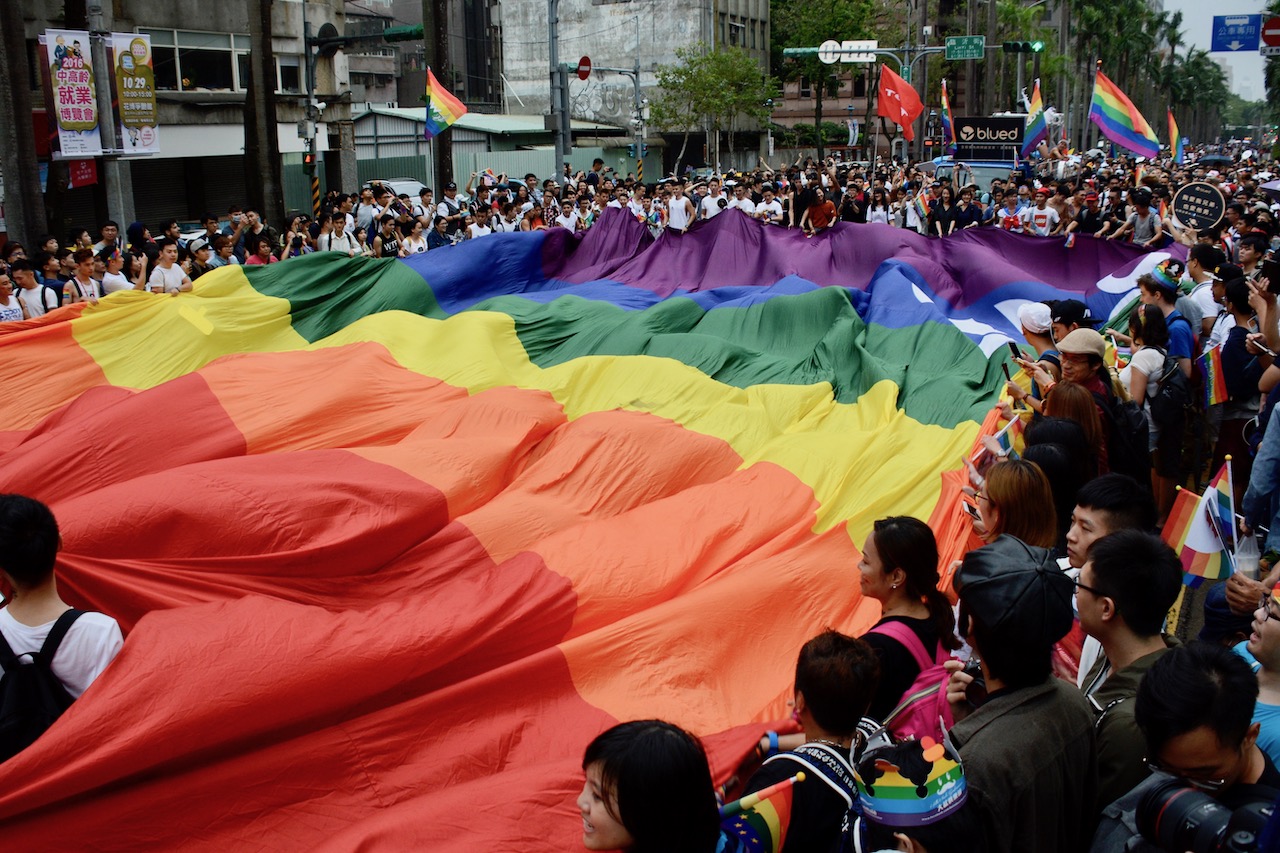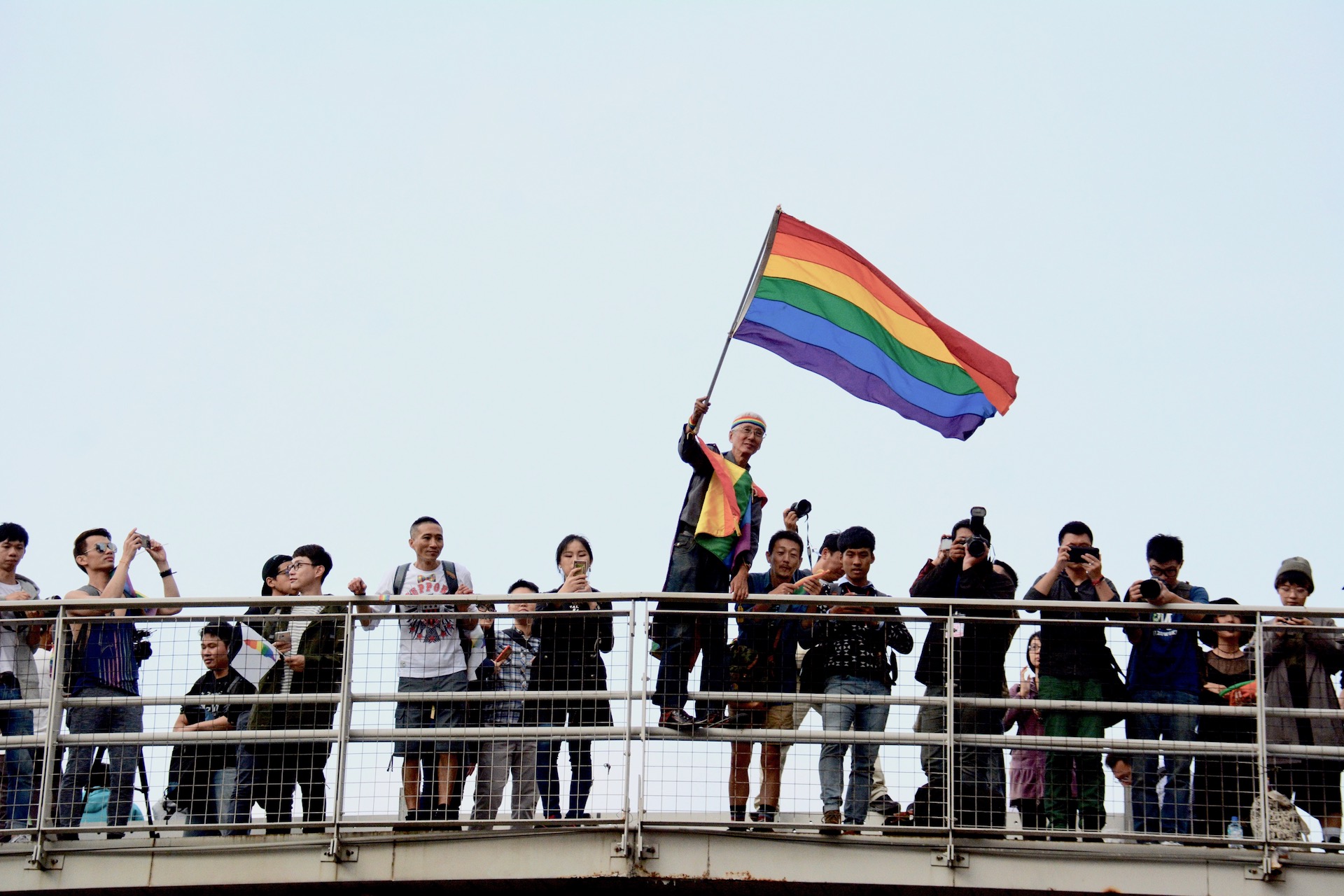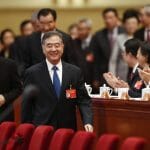The attempt to unseat Huang Kuo-chang of the New Power Party highlights troubling flaws with Taiwan’s recall laws, which could become a source of instability in the nation’s democratic processes.
A conservative coalition on Saturday failed in its bid to recall New Power Party Chairman Huang Kuo-chang due to his support for marriage equality.
Initiated by the Greater Taipei Stability Power Alliance, Saturday’s recall attempt in New Taipei City’s 12th electoral district masqueraded as a move to unseat the charismatic Huang for various reasons, among them that he is “arrogant,” a “populist” who doesn’t listen to the people, and that he spends “too much time at the legislature.” Despite their repeated denials, it is an open secret that the Alliance has cooperated closely with conservative Christian Churches in Taiwan and that their principal objective is to unseat legislators who support same-sex marriage.
Votes in favor of recalling Huang totaled 48,693, against 21,748 who opposed. Under new recall rules, one-fourth of the 255,551 constituents in the electoral district needed to take part in the vote, and of them 63,888 needed to vote in favor of a recall for Huang to be unseated. Turnout was 27.75 percent. Ironically, Huang came close to being unseated due to changes in recall laws that his party has advocated for, and would have been recalled had not the two main political parties blocked his proposal to adopt single-majority recall rules.
The Alliance is associated with the Faith and Hope League, a political party which ran on an anti-same-sex marriage platform in 2016. Despite Saturday’ setback, it has announced its intention to initiate similar recall efforts against legislators who openly advocate for marriage equality, among them Wang Ting-yu (Tainan) and Hsiao Bi-khim (Hualien). Both are from the ruling Democratic Progressive Party. (Unlike their elected namesake, legislators at large, such as Yu Mei-nu, cannot be recalled.)
The entire campaign against Huang has relied on disinformation and the ills that purportedly would plague Taiwan should same-sex unions be legalized. Earlier this year, reports clearly demonstrated that the U.S.-based anti-LGBT organization MassResistance has been cooperating with Taiwanese Christian groups in their campaign against same-sex marriage. One of the many strategies proposed by MassResistance is the targeting of legislators who support LGBT rights, either to unseat them or to deter them from openly advocating for marriage equality.
Christians account for approximately 5% of the total population. More than 80% of young Taiwanese are in favor of legalizing same-sex marriage.
As a participant in Taiwan’s democratic experiment, the Alliance must respect the wishes of the majority, and mustn’t be allowed to turn democracy against itself in the pursuance of its bigoted policies.
The most troubling aspect about the recall attempt is the dangerous precedent it would have set had it been successful (the Alliance’s intention to initiate similar efforts tells us that we are not out of the woods yet). At issue here is the negative impact that such recalls can have on Taiwan’s democracy, regardless of who the targeted official is. A marginal group demonstrated on Saturday, and likely will attempt to demonstrate concretely, that it is now possible to unseat just about any elected official who won by a close margin in an election, regardless of that official’s actual performance (Citizen Congress Watch has given Huang top grades). All that is needed now is an argument — in the present case religious-based opposition to marriage equality — and the mobilization of enough voters who supported the runner-in in the previous election (e.g., the Kuomintang candidate), and one of the key elements of a healthy democracy — regular elections — could be thrown out the window.
Concretely, what this means is that democratically elected legislators — and those who elected them — no longer have the assurance that they will be able to complete their full four-year term in office. Delinquency, the reason why a recall should be launched (and which, like him or not, certainly does not apply to Huang), is no longer the sole justification for a recall to be initiated. This is a serious flaw in the current recall laws in Taiwan and a recipe for instability in electoral processes, especially in the Age of Disinformation, where a small group like the Alliance can now succeed, using fabrication, social media and money, in creating enough momentum to initiate a recall attempt, and maybe one day in unseating an elected official. Recalls should only be initiated in exceptional circumstances; they should never turn into an instrument for narrow-interest groups (in this case ultraconservative religious Churches) or crass politicians who seek to undo electoral results by expediting the ouster of one’s opponent and thereby derail the regular course of democratic politics. Since lower thresholds are now law, there ought to be some evaluation committee in charge of determining whether a recall attempt is made on reasonable grounds.
Huang was duly elected, and his views on same-sex marriage were well known before and during the election campaign (as were Wang’s and Hsiao’s, and the others who could be targeted for recall because of their support for LGBT rights). As a participant in Taiwan’s democratic experiment, the Alliance must respect the wishes of the majority, and mustn’t be allowed to turn democracy against itself in the pursuance of its bigoted policies. They are welcome to field their own candidates in 2018 and 2020, and see whether they can attract enough votes. Before then, they must respect the outcome of the previous elections.
You might also like
More from Society & Culture
Media and Free Expression in Taiwan Are Under Attack: What Can be Done?
How can we avoid the imposition of a blanket silence which can only empower our enemies and damage our democracy? …
Taiwanese Views on Homosexuality Based on Proximity of Relationship, Study Shows
The legalization of same-sex marriage in Taiwan should be viewed not just as a culmination of years of advocacy efforts …
Challenges Remain Following the Legalization of Same Sex Marriage in Taiwan
Despite the adoption of a new law on May 17, campaigns will continue to legitimize the kind of homophobic discourse …









